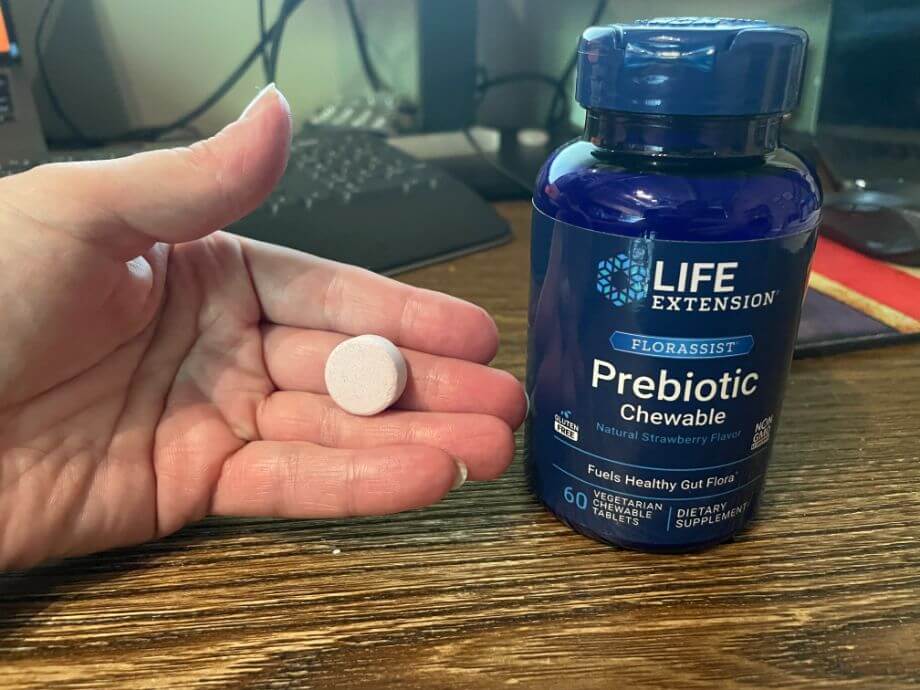Gut health is fundamental to overall well-being. The gastrointestinal system, often referred to as the “gut,” plays a critical role in digestion, nutrient absorption, immune function, and even mood regulation. A healthy gut is populated by a balanced community of microorganisms—primarily bacteria—that assist in these functions. However, poor diet, stress, medications, and lifestyle choices can disrupt this balance, leading to digestive issues, weakened immunity, and other health concerns. This guide will provide a detailed exploration of how to improve gut health and maintain a healthy gut. Let’s discuss the essential aspects such as diet, lifestyle, and probiotics that can significantly impact and improve gut health.

Understanding the Importance of Gut Health
The human gut is home to trillions of microorganisms, collectively known as the gut microbiome. These microbes, including bacteria, viruses, fungi, and other organisms, play vital roles in maintaining health. A balanced gut microbiome supports:
- Digestion and nutrient absorption: Gut bacteria break down complex carbohydrates, fiber, and other compounds that the body cannot digest alone.
- Immune system function: Approximately 70% of the immune system resides in the gut, and the microbiome helps regulate immune responses.
- Mental health: The gut-brain axis is the communication network between the gut and brain, and an imbalanced gut can contribute to mood disorders like anxiety and depression.
- Inflammation control: Healthy gut bacteria help reduce inflammation, which can otherwise contribute to chronic diseases like heart disease and diabetes.
A disrupted gut microbiome, known as **dysbiosis**, can lead to digestive problems such as bloating, gas, constipation, diarrhea, and even more severe conditions like irritable bowel syndrome (IBS) and inflammatory bowel disease (IBD).
Don’t Miss: Improve Heart Health With This Comprehensive Guide!
Diet: The Foundation of Gut Health
The food you eat plays a central role in determining the health and diversity of your gut microbiome. A diet rich in fiber, probiotics, and prebiotics can help to not only improve gut health but also maintain a balanced and healthy gut.
Increase Fiber Intake
Fiber is the primary fuel for the beneficial bacteria in your gut. It helps them produce short-chain fatty acids (SCFAs), which nourish the cells in your colon and help reduce inflammation throughout the body.

- Soluble fiber: Found in oats, beans, and fruits, soluble fiber dissolves in water and helps lower cholesterol levels and improve blood sugar control.
- Insoluble fiber: Found in whole grains, nuts, and vegetables, insoluble fiber adds bulk to the stool and helps food pass more quickly through the digestive tract.
- Tip: Aim for 25-30 grams of fiber per day from a variety of sources like fruits, vegetables, legumes, and whole grains.
Incorporate Fermented Foods
Fermented foods are rich in beneficial bacteria (probiotics) that can help enhance the diversity and balance of your gut microbiome. Fermentation occurs when microorganisms, like bacteria and yeast, convert carbohydrates into alcohol or acids, which help preserve the food and create probiotic-rich products. In this way, they can amazingly improve gut health. Some popular fermented foods are listed below.
- Yogurt: Contains live cultures such as Lactobacillus and Bifidobacterium, which support gut health.
- Kefir: A fermented milk drink loaded with probiotics, kefir is more potent than yogurt in its probiotic content.
- Sauerkraut: Fermented cabbage is rich in probiotics, fiber, and antioxidants.
- Kimchi: A spicy, fermented vegetable dish popular in Korean cuisine, kimchi is rich in probiotics and beneficial for gut health.
- Tempeh and miso: Both are fermented soy products that contribute to a healthy gut.
- Tip: Include at least one serving of fermented foods in your diet daily to support the growth of beneficial bacteria.
Consume Prebiotic-Rich Foods
Prebiotics are non-digestible fibers that act as food for the beneficial bacteria in the gut, helping them thrive. Prebiotics can be found in many plant-based foods and help promote a healthy balance of gut bacteria which ultimately improve gut health.
Some of the prebiotic-rich foods are garlic, onions, leeks, asparagus, bananas, oats, chicory roots, Jerusalem artichokes etc.
- Tip: Add prebiotic-rich foods to your meals regularly to support the growth of healthy bacteria.
Limit Sugar and Processed Foods
High sugar and processed food intake can disrupt the balance of gut bacteria by promoting the growth of harmful bacteria and fungi. Over time, this can lead to inflammation and contribute to digestive issues. Artificial sweeteners, such as aspartame, have also been shown to negatively affect gut microbiota composition, potentially contributing to metabolic imbalances and glucose intolerance.

- Tip: Reduce your intake of sugary and highly processed foods, and opt for whole, unprocessed ingredients whenever possible.
The Role of Probiotics and Prebiotic Supplements
Probiotics are live microorganisms that provide health benefits when consumed in adequate amounts. They help restore balance in the gut by increasing the population of beneficial bacteria and suppressing harmful ones that can lead to improve gut health. Probiotics are available in supplement form, but they are also naturally present in fermented foods. Some common strains of probiotics include:

- Lactobacillus: Often found in yogurt and fermented foods, Lactobacillus helps break down lactose and produces substances that inhibit harmful bacteria.
- Bifidobacterium: This strain is found in some dairy products and helps digest dietary fiber and reduce gut inflammation.
- Tip: If you experience digestive issues or are recovering from antibiotic use, a high-quality probiotic supplement containing a variety of strains may help restore gut health.
Prebiotic Supplements
Prebiotics, as mentioned earlier, feed beneficial bacteria in the gut. In addition to dietary sources, prebiotic supplements like inulin and oligosaccharides can be used to enhance gut bacteria growth and improve gut health.
- Tip: Consult a healthcare provider before taking any supplements, especially if you have a pre-existing digestive condition.
Lifestyle Habits to Improve Gut Health
Diet is only part of the equation when it comes to maintaining a healthy gut. Several lifestyle habits also play a significant role that can lead to a healthy gut.
Manage Stress
Chronic stress can disrupt the gut microbiome and contribute to digestive issues such as IBS. The gut and brain are closely connected through the gut-brain axis, meaning mental health directly influences gut health. Stress management techniques that has the ability to improve gut health include:

- Meditation helps calm the mind and reduce stress-induced gut issues.
- Deep breathing exercises promotes relaxation and can alleviate symptoms of gut discomfort.
- Physical activity such as regular exercise can help reduce stress levels and improve gut motility.
- Tip: Incorporate stress-relief practices into your daily routine to support both mental and gut health.
Get Enough Sleep
Poor sleep patterns can negatively affect gut health by disrupting the natural balance of the microbiome. Sleep deprivation has been linked to increased inflammation and a higher risk of gut-related issues.

- Tip: Aim for 7-9 hours of quality sleep each night to maintain a healthy gut and support overall health.
Stay Hydrated
Water is essential for digestion and nutrient absorption. Staying hydrated helps maintain a healthy mucosal lining in the intestines and supports the movement of food through the digestive system. Thus, it can be very beneficial to improve gut health.

- Tip: Drink at least 8 glasses (2 liters) of water per day, and more if you’re physically active or live in a hot climate.
Limit Antibiotic Use
While antibiotics are essential for treating bacterial infections, they can also disrupt the balance of the gut microbiome by killing both harmful and beneficial bacteria. Overuse of antibiotics can lead to long-term changes in the gut microbiome and increase the risk of antibiotic-resistant infections.
- Tip: Only take antibiotics when prescribed by a healthcare professional, and consider taking probiotics during and after antibiotic treatment to help restore gut health.
Recognizing and Treating Gut Health Issues
If your gut health is compromised, you may experience the symptoms such as bloating, gas, diarrhea or constipation, abdominal pain or discomfort, food intolerances, fatigue or brain fog and frequent infections or weakened immunity.
If you suspect such gut health issues, it’s essential to consult a healthcare provider for proper diagnosis and treatment. Conditions such as irritable bowel syndrome (IBS), small intestinal bacterial overgrowth (SIBO), and inflammatory bowel disease (IBD) require specialized treatment.
The Bottom Line
Maintaining gut health is essential for overall well-being, as the gut influences everything from digestion and immunity to mental health. By incorporating a balanced, fiber-rich diet, including fermented and prebiotic foods, managing stress, and adopting healthy lifestyle habits, you can support your gut’s natural balance and function. Improving your gut health is a long-term investment in your overall health, and even small changes to your diet and lifestyle can lead to significant benefits. Prioritizing gut health not only helps alleviate digestive issues but also contributes to better mental clarity, stronger immunity, and enhanced vitality. With the right approach, you can cultivate a healthier and happier gut for years to come. Hopefully, you found this article about how to improve gut health helpful enough. Don’t forget to lwt us know in the comments below. Thanks for visiting and appreciating our work.
